- Home
- Joel C. Rosenberg
The Twelfth Imam Page 9
The Twelfth Imam Read online
Page 9
For the rest of the day, they hung out together, playing hearts, reading novels, or trying to nap and forget their troubles. But when the sun began to set and the temperature began to drop and still no floatplanes had come, they realized they had no choice. The men and older boys unpacked again, and David and Marseille were sent out to gather more firewood.
“What do you think is going to happen, David?” Marseille asked as they headed back into the woods.
“It’ll be okay,” David reassured her. “Old Man McKenzie will come for us.”
“What if he doesn’t?”
“He will.”
“Then why hasn’t he?”
David stopped, turned to her, took her hands. “We paid a lot of money for this trip. McKenzie has every incentive to make us happy. There’s just some mechanical problem or something. But he’ll be here.”
“You’re sure?” she asked.
“I promise.”
Thunder began to rumble and boom above them. Confident they were alone, David stepped close to Marseille and put his arms around her small frame. She stepped in closer and held him tight. Suddenly they were kissing again, and for those few moments, all other thoughts melted away. Despite the chill, he felt warm all over. He wondered if she could feel his heart pounding so intensely. And then it began to pour.
Wednesday passed, and still no planes.
The rain didn’t stop. The card games inside the damp cabins were getting old fast. It was now Thursday, still gray and growing colder, and no planes. For most, anger had turned to fear. They were stranded in the middle of nowhere. Their provisions were nearly gone. The men debated whether they should use the fishing boats to try to find help, but the truth was, they were hundreds of miles from the nearest human being. They had no maps. They had no compasses. They had little fuel, and the thought of running out of diesel somewhere on the reservoir finally ruled out that possibility.
Everyone was on edge, and David could tell his dad was feeling worse by the hour. How had they misjudged McKenzie’s ability to fulfill his obligations so badly? What could possibly be keeping him? In six years, nothing like this had ever happened. Surely their wives and secretaries would be calling the outfitter’s offices in Clova or the police or someone. Send in the Mounties for goodness’ sake!
But for David and Marseille, the days were a gift. They brought their blankets, music, and books to the A-frame and let go of the rest of the world. They covered every imaginable topic, amazed that their conversations never seemed to become tired.
“Do you believe in God?” Marseille asked at one point.
“I don’t know,” he said. No one had ever asked him that before.
“Aren’t you a Muslim?” she asked.
“Yeah, I guess.”
“You guess?”
“Okay, yeah, I’m a Muslim—a Shia, actually.”
“A what?”
“That’s a kind of Muslim,” he explained. “The kind from Iran.”
“So you believe in God,” she clarified.
“I don’t know what I believe,” David admitted.
“Why not?”
“Because my father’s an atheist,” he explained, “and my mom’s an agnostic.”
“Aren’t they Muslims too?”
“Technically,” David said. “But after all they saw during the Revolution, they decided Islam couldn’t be true.”
“Why not?”
“They didn’t know how to believe in a god who would command people to kill and maim and torture so many innocent people.”
Marseille said nothing for several long minutes. Then she asked, “What do you think about Jesus?”
David shrugged. “I believe he existed. Muslims say he was a prophet. But I don’t know.”
“Do you believe if we pray, God will answer us and get us out of here?”
He shrugged and said he didn’t know, but he didn’t think so.
“It couldn’t hurt, though, could it?” she asked.
“Praying?” he asked.
“Yeah.”
“I guess not,” he said, unconvinced.
But she didn’t pray. Instead, she lay down on the bed and stared out the window. Within a few minutes, she was sleeping. David covered her with a blanket to keep her warm. He lay down beside her and slept too.
Several hours later, David woke up. Marseille turned over and faced him. Her eyes held a sudden purpose as she stared into his, and her request was irresistible.
“David, I need you to tell me the story of our parents,” she whispered. “Please. Don’t say no.”
He couldn’t refuse her now.
So with mesmerizing detail, he explained how Marseille’s mother had vetoed at least three plans the CIA and the State Department had drawn up, schemes—in her view—ranging from impracticable to suicidal. Then he explained how Marseille’s father had devised the plan that was finally accepted and executed. The Harpers, the Shirazis, and the other American FSOs would be given false Canadian passports. This, however, would take a special, secret act of the parliament in Ottawa, since the use of false passports for espionage was expressly forbidden by Canadian law. They would also be given false papers that identified them as film producers from Toronto working on a new big-budget motion picture titled Argo, set in the Middle East, in conjunction with a major Hollywood studio. Their cover story would be that they were in Iran scouting locations. The CIA would set up a front company in Los Angeles called Studio Six, complete with fully operational offices, working phone lines, and notices in the trade papers announcing casting calls and other elements of preproduction. The Americans and the Shirazis would then further develop and refine all the details of their cover stories, commit them to memory, and rehearse them continually. Eventually, the CIA would send in an operative named Jack Zalinsky to go over the final details and to see if they were ready for any interrogation they might encounter. When the time was right, Zalinsky would take the team to the airport and try to get them through passport control without getting caught—and hanged.
“You’re saying my father came up with this idea?” Marseille asked when David was finished.
“Actually, your mom helped quite a bit,” David replied.
“That doesn’t make sense,” she protested. “How would my parents even know . . . ?”
Her voice trailed off. The wind rustled through the pines. Once again, dark clouds were gathering overhead. Another storm front seemed to be brewing, and it was getting colder. David glanced at his watch. They needed to get back to the camp before people got worried about them.
But Marseille urged him not to leave. “Just a few minutes more,” she said, taking his hand and squeezing it gently. “I want to know the rest of the story.”
“Marseille, it’s getting late.”
“I’ll make it worth your while,” she smiled.
“How?”
She reached into her knapsack and pulled out a box of Junior Mints.
“I can’t believe you have any left,” David said.
“This is the last one.”
“And you’re actually going to share them with me?”
“Only if you finish the story.”
David’s stomach growled. It was an offer he couldn’t refuse, so he didn’t.
“Okay, now we’re talking,” he said, as one of the mints melted on his tongue. “D-day was set for January 28, 1980. There were a bunch of regional elections going on. Ayatollah Khomeini’s people were trying to maintain control. The secret police had their hands full murdering dissidents and killing the opposition, so this Zalinsky guy believed they might have a window where the police might be distracted somewhat. It was a long shot, but it was the best they could do. So Zalinsky got the team to the main airport in Tehran. They were going through passport control, and my parents were absolutely terrified. Your parents were cool as cucumbers, but my parents—not so much. They don’t exactly look Canadian, after all, and they were never convinced your parents’ plan was going to work. B
ut your father and Mr. Zalinsky kept insisting that if the tickets and passports said they were Canadians, then the guards at the airport would accept it. And they did.”
“That’s amazing,” Marseille said.
“So before Khomeini’s thugs knew what was happening, your parents, mine, and the others were taking their seats on board Swissair flight 363, heading for Toronto via Geneva. As soon as they cleared out of Iranian airspace, Mr. Zalinsky ordered champagne for the whole team.”
“But my parents don’t drink,” Marseille said.
“Neither do mine!” David said. “But believe me, they did that day. From what I hear, they finished off two bottles while Mr. Zalinsky toasted them and asked what they were going to do with their newfound freedom.”
“And?” Marseille pressed, hanging on every word. “What did they say?”
“Well,” David said, “your folks said they were going to work for the State Department for a few more years, move to New Jersey, and buy a little house near the beach. Your dad said he wanted to teach. Your mom said she wanted to work in the city and make a boatload of money. And that’s just what they did, right?”
Marseille nodded, her eyes misting. “What did your parents want?” she asked.
“They just had one question,” David said.
“What’s that?”
“When they finally got to America, would they really be let in?”
Just as he said it, the alarm on David’s watch went off.
“It’s almost time for dinner,” he said, turning the alarm off. “We really need to get back.”
But Marseille wasn’t hungry for dinner. She squeezed his hand and pulled him closer. She stared deep into his eyes with a look of gratitude and desire, which he returned with equal intensity. She kissed him with a passion unlike anything he had ever imagined. She kissed him on the neck and the lips and wouldn’t stop. She was holding him tighter and gasping for air, and David felt himself losing control. He knew where they were going was wrong, but he couldn’t stop. He didn’t want to stop.
He felt intoxicated by her presence and her touch, and the room began to spin. Ignoring all of his cautions, all of his fears, and everything he’d been brought up to believe, he willingly, eagerly let Marseille take him from one world into another, savoring every moment along the way.
20
Dawn broke on Friday morning.
David awoke in his own cabin, all alone. His father and brothers were nowhere to be seen, but he didn’t mind. He’d been dreaming about the previous night with Marseille, dreaming about where it all would lead next. But suddenly he heard the sound of a floatplane coming across the lake.
David jumped out of his sleeping bag, threw on a sweatshirt, and stepped out into the frosty morning air. Everyone else, it turned out—including Marseille—was already awake and down by the docks as Old Man McKenzie landed his de Havilland first, followed by the others. David ran down to meet them, half-fearing the men might lynch the pilots when they finally taxied over to them.
But before any of them could say a word, McKenzie climbed out of his cockpit and apologized profusely, promising to refund all of their money just as soon as they got back to Clova. It worked. The men were grateful and surprisingly forgiving. What they really wanted to know was what in the world had happened and why McKenzie and the others hadn’t shown up on Tuesday morning, as planned. But no one was prepared for McKenzie’s answer.
“Believe me, gentlemen, we were all suited up and ready to come get you guys when we got word that morning that the Canadian government had just issued a no-fly order for the entire country. And it wasn’t just Canada. All commercial and civilian flights throughout North America were grounded. No one could take off, and everyone in the air had to land immediately.”
“Why? What happened?” David’s father asked.
“A group of terrorists hijacked four commercial jetliners—two from Boston’s Logan Airport, one from Newark International, and one from Washington Dulles,” MacKenzie explained.
David gasped.
“Two of the planes plowed into the World Trade Center,” McKenzie went on. “Another flew right into the Pentagon. The fourth went down in a field in Pennsylvania. Everyone on the planes was lost. No one knew if there were more hijackers on more planes out there, so the entire air transportation system was simply shut down. Believe me, we wanted to come get you guys. But the Air Force was threatening to shoot down any unauthorized plane in the sky. The only planes in the air were F-15s and F-16s, all armed with air-to-air missiles and ready for action. I’ve never seen anything like it. But again, I apologize for what you’ve been through. If there had been any way to get you—or get word to you—please know we would have done it.”
The group stood there in stunned silence. And then it got worse.
“Was anyone in the towers hurt?” Marseille asked.
David noticed that she was ashen, and her hands shook.
“I’m afraid the towers don’t exist anymore, young lady,” McKenzie replied.
“What do you mean?” she asked.
“I mean the towers collapsed not long after the planes hit them.”
“Both of them?”
“I’m afraid so,” McKenzie said.
“Was anyone hurt?”
“Are you kidding?” McKenzie asked. “At this point, they’re saying almost three thousand people have died, but there may be more.”
“Three thousand?” David’s father asked.
McKenzie nodded. “There’s a big gap in the middle of Manhattan where the towers used to stand. There’s smoke rising as far as the eye can see. Whole thing took less than two hours, and whoosh, they were gone, both of them.”
Marseille collapsed to the ground and began to sob uncontrollably. David looked to Mr. Harper, expecting him to comfort her. But Marseille’s father just stood there, the blood draining from his face.
Scared and confused, David cautiously knelt by Marseille’s side and gingerly put his arm around her shoulder. “It’s okay, Marseille. You’re safe. We’re all safe, right? Really, it’s going to be okay.”
But Marseille didn’t respond. She couldn’t speak. Neither could her father. They tried, but the words would not form. She was disintegrating, and her father was standing there like a zombie.
“David,” Dr. Shirazi said softly, his voice faltering.
“Yeah?”
“It’s Marseille’s mother.”
“Mrs. Harper?” David asked. “What about her?”
His father’s eyes welled up with tears. He took a deep breath and said, “She works for a bank, David. She works in the South Tower.”
David couldn’t believe what he was hearing.
“Mrs. Harper works in the World Trade Center?” he finally asked.
Reluctantly his father nodded.
David sank to the ground and sat for a long while, not knowing what to say.
“Maybe she got out,” he finally said, his lower lip trembling.
21
Spring Lake, New Jersey
The last time David saw Marseille was the day of the funeral.
Charlie Harper simply couldn’t bear the loss of Claire, his beloved wife of twenty-three years. He had no idea how to take care of himself, much less his only daughter, under these circumstances. He wasn’t eating. He was losing weight. He rarely spoke. He was clinically depressed and failing to take his medication. So he resigned his job, put the family house on the market, packed up their belongings, and—unable to bear the thought of boarding a plane—drove Marseille across the country from New Jersey to Oregon, where his folks had a farm near Portland.
And just like that, Marseille Harper disappeared from David’s life.
She accepted a hug from David at the funeral home. But she was so overcome with emotion that she couldn’t talk. She could barely even look him in the eye at the memorial service. After she moved, he wrote her letters. They went unanswered. He called and left her messages. She never called back. Once,
her grandfather answered the phone and said Marseille was out and that she’d call back. She never did. He even sent her a box of Junior Mints. There was still no reply. David finally got the message and stopped trying.
Marseille Harper had been his first love. He had given her his body, heart, and soul, and she had given him hers. But in an instant of time, it had all been torn away. The feelings she’d stirred in him had changed him forever, but it was all for nothing. Marseille was lost to him now, and he had no idea how to get her back. He grieved for her but did his best not to blame her. He had no idea how he would have reacted if his mother had been murdered by terrorists and his father had lost his will to function—and perhaps to live. And while he and Marseille had spent an amazing week together, the truth—painful though it was—was it had been only a week. He had no real claim on her. He had no right to expect that she would stay in touch with him, and clearly, wishing wouldn’t make it so.
Quietly, privately, alone in his room—or on the bus, or alone with his thoughts during a study hall or at his locker—he would pray for Marseille and her father. He begged Allah to comfort them and heal them—and him, too. He beseeched Allah to let Marseille somehow find a measure of peace and some good friends who would stand by her and encourage and protect her. He asked Allah to let Marseille remember him and to move her to write back to him.
But as fall turned to winter, David began to lose hope. It was as though his words echoed back from the ceiling of his room, useless and ridiculous. He might as well be praying to the rug on his floor or the lamp on his desk, he concluded, and this only accelerated the tailspin.
His grades plummeted from straight A’s to straight D’s. His parents were worried about him. So were his teachers. But nothing they suggested seemed to help. The only good news was that both of his brothers were off at college and not there to tease him.

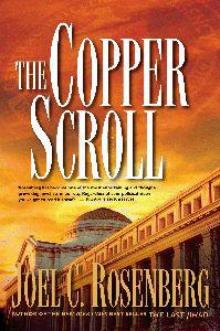 The Copper Scroll
The Copper Scroll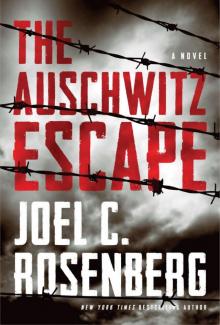 The Auschwitz Escape
The Auschwitz Escape The Last Jihad
The Last Jihad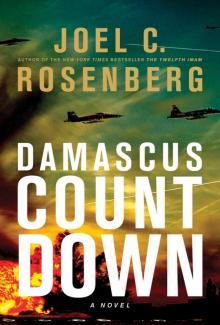 Damascus Countdown
Damascus Countdown The Persian Gamble
The Persian Gamble The Jerusalem Assassin
The Jerusalem Assassin Dead Heat
Dead Heat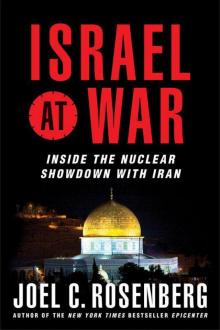 Israel at War: Inside the Nuclear Showdown With Iran
Israel at War: Inside the Nuclear Showdown With Iran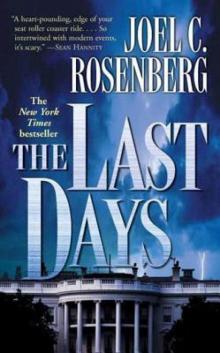 The Last Days
The Last Days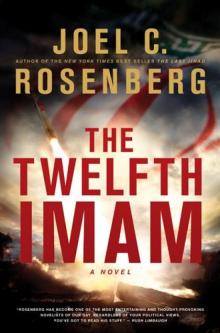 The Twelfth Imam
The Twelfth Imam Epicenter 2.0
Epicenter 2.0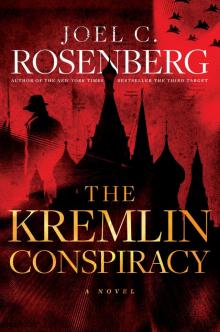 The Kremlin Conspiracy
The Kremlin Conspiracy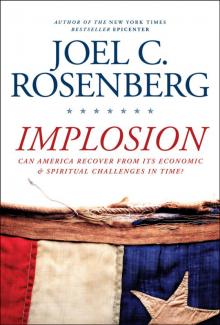 Implosion: Can America Recover From Its Economic and Spiritual Challenges in Time?
Implosion: Can America Recover From Its Economic and Spiritual Challenges in Time?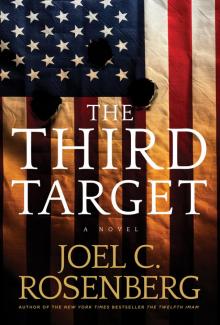 The Third Target: A J. B. Collins Novel
The Third Target: A J. B. Collins Novel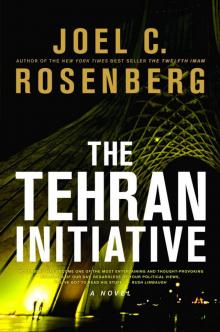 The Tehran Initiative
The Tehran Initiative Inside the Revolution
Inside the Revolution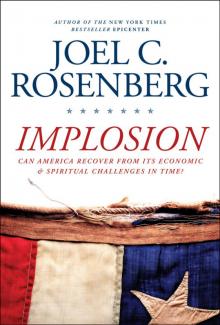 Implosion
Implosion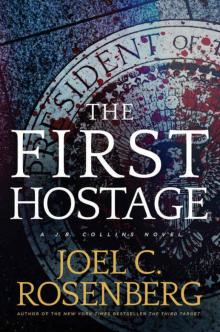 The First Hostage: A J. B. Collins Novel
The First Hostage: A J. B. Collins Novel